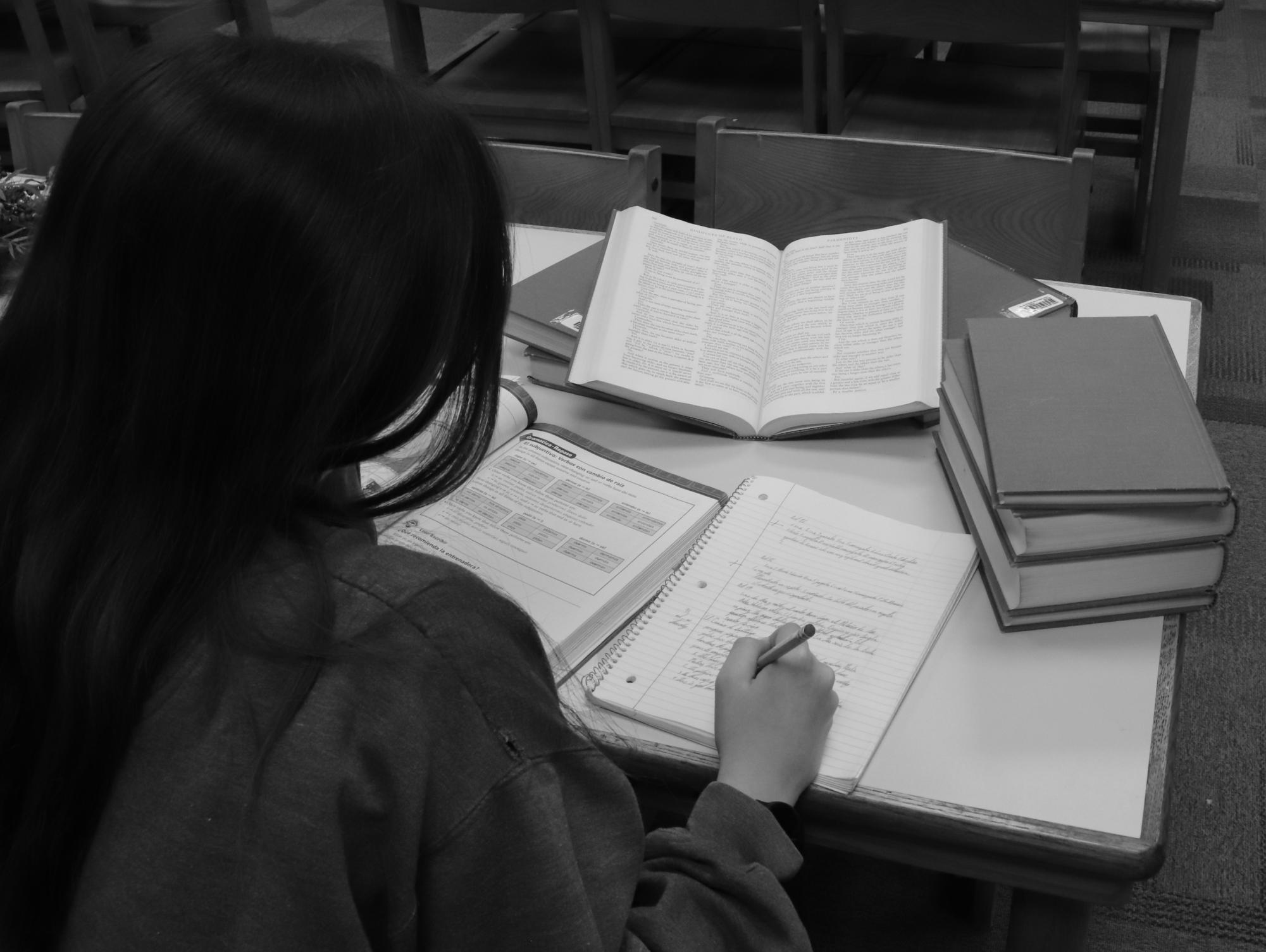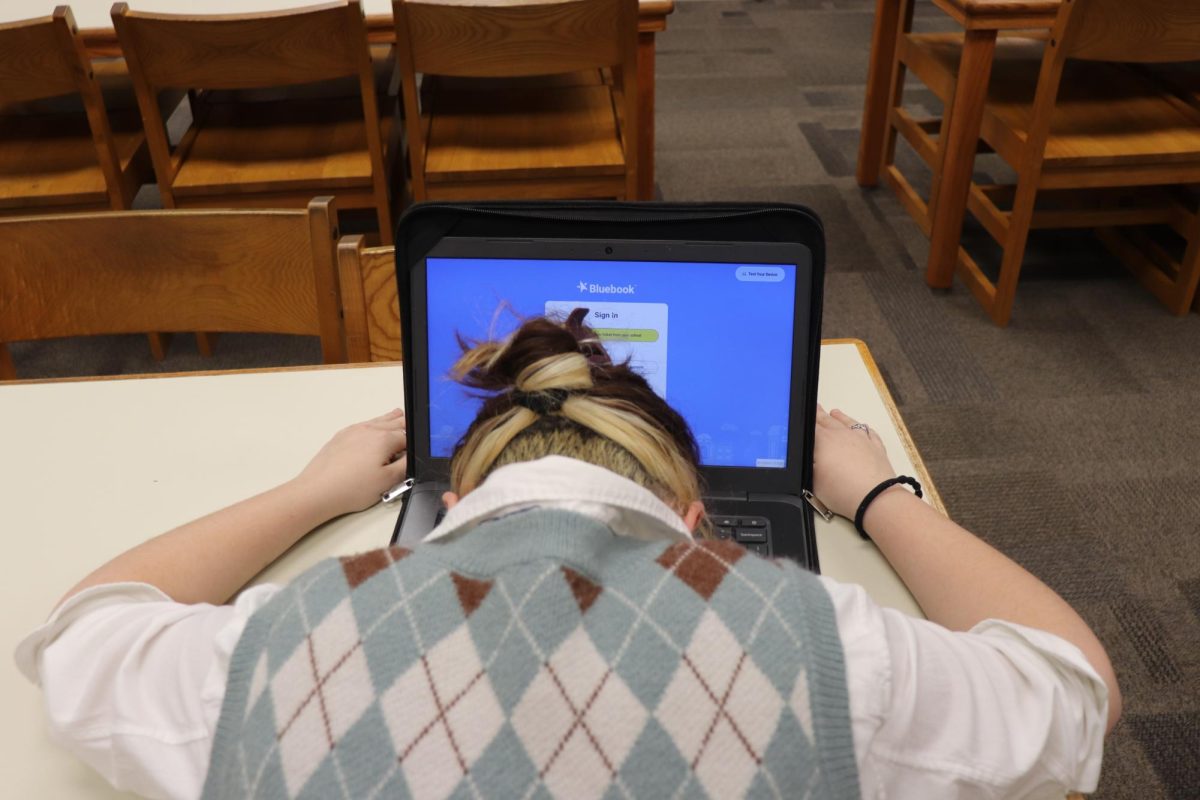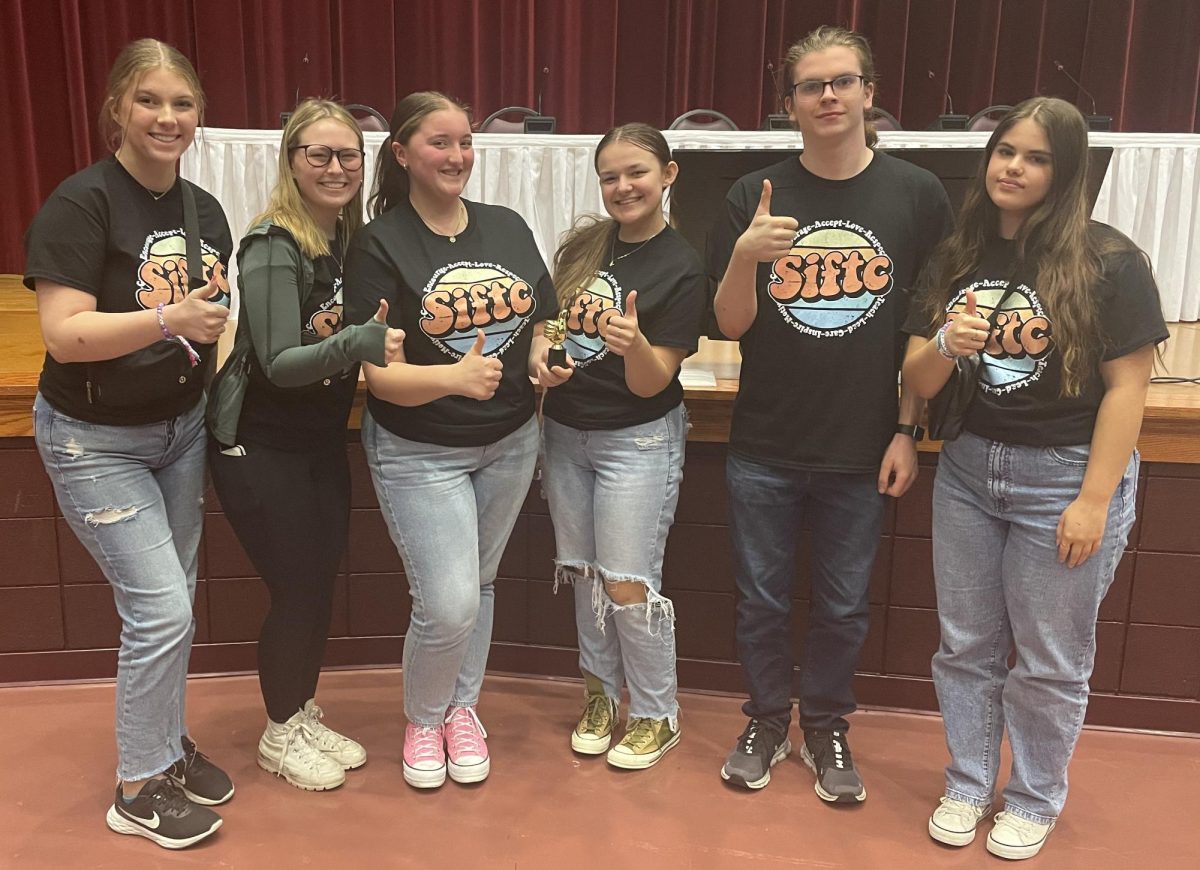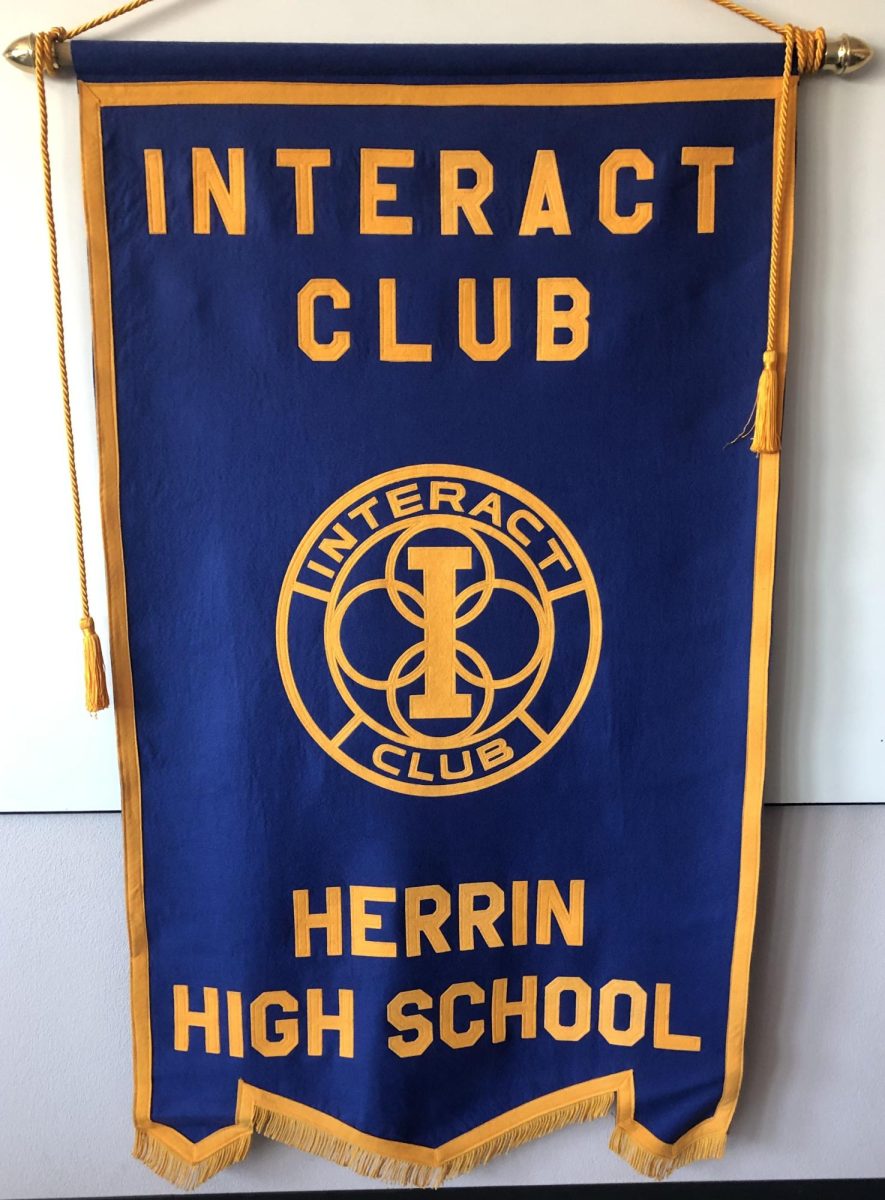This year, Herrin High School is reverting to its old rule regarding final exams. If a student has no ACRs, no unexcused absences, has not missed more than three days, and keeps a grade higher than sixty-three percent in a certain class, they will not have to take finals. But any student can choose to take finals. If they do, their exam grade cannot hurt their overall semester grade, but it can help them. However, if a student is late for their final, they will not be admitted to the testing room. Every student must stay for the whole hour they take their final, but they only have to stay for that hour.
Assuredly, many students will have to (or will choose to) take finals. So, to help HHS students prepare for core-subject finals (math, science, history, English), several teachers were interviewed.
Mr. Johns, the HHS Science Department Chair, told the Tiger Tattler that each science final/semester exam is “designed collaboratively by each member of the department as a tool to comprehensively assess the student learning of the State Science Standards throughout each semester.”
Many people would be confused about how to study for a science final—what kind of questions are covered and what skills are necessary. Mr. Johns recommends that students take notes and practice the covered concepts daily. He advises students to “quiz yourself, and have other students quiz you on the information… have a study area free from distractions. Get many hours of sleep in the days approaching the final exam.”
Students should also strive to eat a good breakfast (representing the four food groups) and sleep well the night before. Overall, even though science can be a challenging subject, listening to Mr. Johns’ advice can offer students a path toward success.
Mr. Harlow, the HHS Math Department Chair, provided helpful advice for students. Many people find math difficult and with a final exam for classes such as calculus, algebra, or geometry, it can be challenging.
Mr. Harlow said “Math finals are cumulative. All material [is] fair game for questions, though there is generally a small bias toward more recent topics… you will find more multiple choice questions on semester exams than on unit tests because those can be graded more quickly.”
For preparation, Mr. Harlow advised students to listen to their teachers—as the best source of information to study—and review old tests and quizzes. He says students should answer every question they come across because skipping a question is the only way to be sure you’ve gotten it wrong. Mr. Harlow advises students when answering multiple choice questions, to always eliminate wrong answers (increasing your chances of getting the question right) and to work backward. “Now and then,” he says “it’s faster and more efficient to work backward to find a correct answer than to work forward.”
Finally, Mr. Harlow gave the Tiger Tattler a math lesson. To calculate a semester grade without the necessity of finals, take 50% of the first quarter grade added to 50% of the second quarter grade. But if a student has to take finals, they can calculate their semester grade by adding 40% of their first quarter grade, 40% of their second quarter grade, and 20% of their final exam grade. This helps them know what score they should get. To conclude, although math is a herculean effort for many students, Mr. Harlow’s advice gives consolation to all.
Ms. Hickman, an English teacher at HHS, informed Tiger Journalism that English finals cover “Parts of Speech, Parts of Sentences, Phrases, Clauses, Agreement, and all the units covered in one semester. If there’s a novel on the test, there might be some open-ended or even essay questions for that material.”
She also said that many teachers will put their twists on exams. For instance, Miss Hickman’s Advanced Placement British Literature final exam is an essay exam. To prepare for these tests, Ms. Hickman recommended students “make sure you have your books, packets, notes, and other support materials with you when you sit down to study for your tests.” She said that, as teachers will offer study guides, students should request these materials in advance.
As English exams often come with essay prompts, Ms. Hickman recommended that students “make sure they’ve answered all parts of the question–most of the time, they lose points because they’ve addressed only part of the prompt… Make sure you’re answering the whole question… and check to see you’ve written a complete thought… Writing in fragments is tempting when you’re in a hurry…. but take your time to ensure thorough and thoughtful responses.” Though lines of poetry, pages of novels, and rigid grammar rules make for an often difficult subject, listening to the advice of an experienced teacher will help.
The last teacher to be interviewed, Mr. Howard of the Social Studies Department, advised studying for a subject that is often misconstrued as the regurgitation of basic facts. He said that most history (and other social studies) exams often have a majority of multiple-choice questions. There sometimes are short answer questions, he says, but these often get removed as the grading period shrinks.
Mr. Howard admitted that the key to succeeding in history is “knowing the content. Listen. If you don’t, be prepared to read.” In studying, he said students should—if they were allowed to keep them—review old tests and quizzes, because questions are often recycled. When a student enters a testing room, they must “be calm, because you can’t change what’s going to happen. You can’t go back in time.”
In the actual testing, if a student comes across a prompt question, they should not panic when they see a long prompt/excerpt. He said students need the context of the question, which they can learn by listening to teachers and reading. Mr. Howard recommends linking history together, from what was previously learned and even from what will be learned in the class. Only with some effort and time, a student surely can succeed greatly in their history finals.
To conclude, the finals season marks a period of boiling anxiety for students and teachers. We march ever closer to the start of Christmas break when classes are marked by a myriad of quizzes, tests, finals, and Christmas parties and events. In such a time, it is easy to get overwhelmed, which can quickly lead to a student’s failure. But, so long as HHS students take the time and effort to study for their classes in the ways prescribed above, there is a great chance that their final exam grades will reflect the work they put in.










